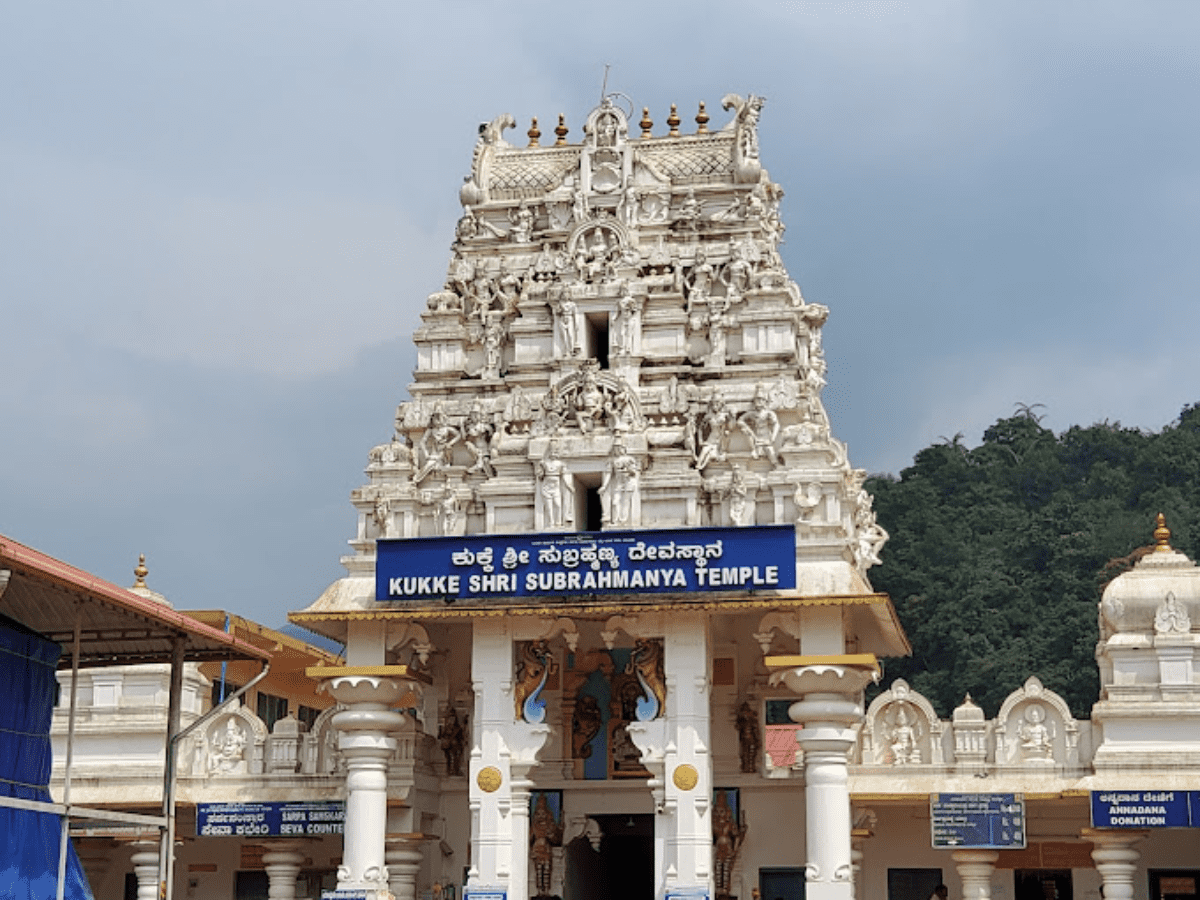
Hindu Jagaran Vedike has erected a poster in front of the Kukke Sri Subrahmanya Swami temple in Dakshina Kannada district asking non-Hindu shopkeepers to refrain from setting up stalls for the upcoming temple festival Champa Shashthi that falls on November 29.
According to the right-wing organisation, Hindus are not being treated well in the current scenario. Taking the recent Shraddha Walkar murder case, where she was murdered and chopped into 35 pieces by her live-in partner Aaftab Poonawala as an example, the organisation feels it is best that there be no non-Hindu stalls at the temple premises.
Siasat.com got in touch with the temple’s executive officer in charge who said that they are not responsible for the poster. “The poster is erected around 1km away from the temple premises. We do not hold any responsibility,” the officer said.
When asked if they plan to allow non-Hindu traders to set up their shops/stalls during the festival time, the officer said they were following the Karnataka Hindu Religious Institutions and Charitable Endowments Rules, 2002.
The Karnataka Hindu Religious Institutions and Charitable Endowments Rules, 2002, allows only Hindu traders to set up stalls/shops during any community or temple festivals, thus banning non-Hindus.
“We are following state government rules,” the officer said.
Siasat.com also spoke to an official at the Subramanya police station who refused to comment on the issue.
Champa Shashti is a festival dedicated to Lord Shiva who incarnated in the form of a ferocious warrior Khandoba to kill demons Malla and his younger brother Mani. The day is marked as the victory of Khandoba over these two evil brothers.
Similar incidents in the past
This is not the first time that right-wing organisations have expressed discomfort with non-Hindu stalls on temple premises.
Earlier this year, many incidents across Karnataka, mainly Dakshina Kannada district, were reported were Bajrang Dal, Hindu Jagran Vedike, and Sri Ram Sene workers created ruckus and destroyed stalls of Muslim vendors who had put up stalls during temple festivals.
On April 7, a 72-year-old Muslim woman shop owner was forced to shut down her shop at the historic Chennakeshava temple in Belur.
Noor Jahan’s family who was given an eviction notice by the temple authorities on March 28 have lost their only source of income, since then.
“We have been paying a monthly rent of Rs 7,351 to the temple administration. As per the contract agreement, we still have one year to either terminate or renew the agreement,” The Hindu quoted Noor Jahan.
In March, Hindutva goons in Kodagu district on Friday forced Muslim vendors to shut down fruit and juice stalls set up on the premises of the venue where a state-level agricultural programme was scheduled to take place.
In Shivamogga district, non-Hindu vendors were prohibited from setting up stalls at a local fair, Kote Marikamba Jatra.
Banners announcing that Muslims cannot pitch their stalls at the annual fair of Bappanaadu Durgaparameshwari Temple near Mangaluru district in Karnataka have come up around the temple. However, the temple authority denied authorizing any such banner and said that it has been put up without bringing it to their notice.
Education minister justifies boycott
Karnataka Secondary and Higher Education minister B C Nagesh justified the anti-Muslim posters put up in Shivamogga. The posters encouraged the prohibition of Muslim traders from setting up shops at an annual local festival in the city.
“Everything has an equal and opposite reaction. Those people tried to oppose the law of the land and this is a reaction to it. Someone had a communal agenda and two months ago nobody had thought that the high court would pass an order against it and that Muslims would call for a statewide bandh over the court’s ban on the issue,” he said.
